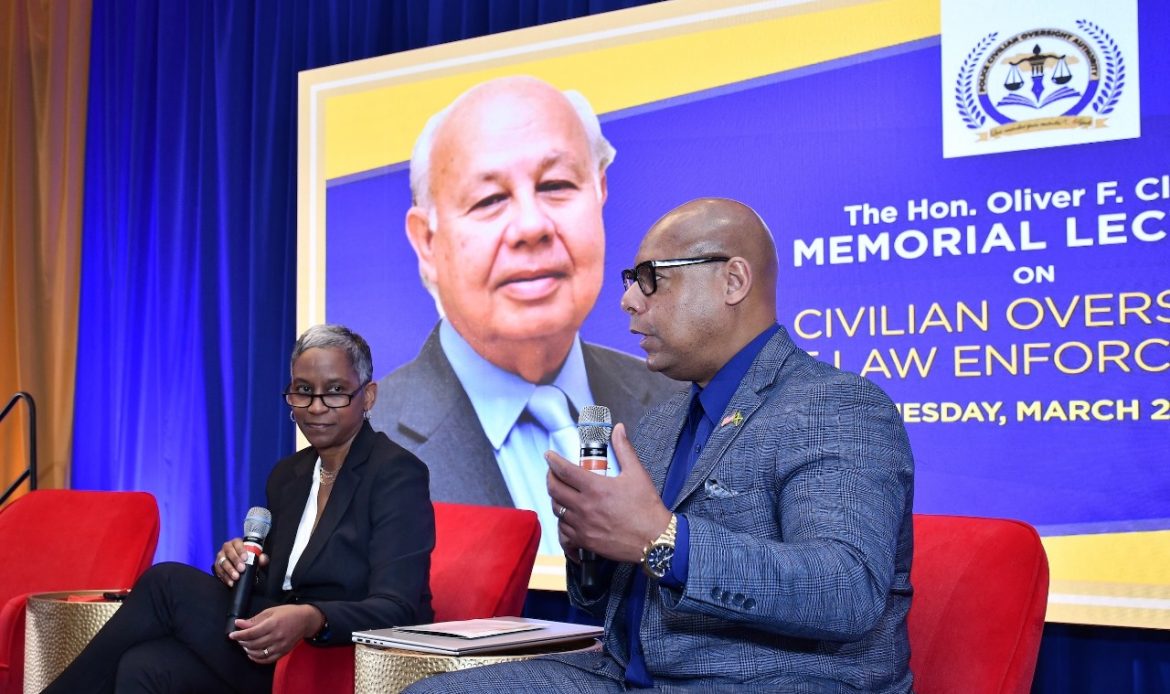US criminal experts say major lessons learned since George Floyd’s death
They carry a heavy burden. But, tethered to sworn oaths, familial bonds, and even fear, some officers within police forces across the world opt for secrecy and inaction when members of their squads openly act outside of policy. God forbid those acts end with the death of a civilian. By that time, it is usually too late.
Two law-enforcement experts from the US believe this is perhaps the biggest issue arising from the monumental May 20, 2020 killing of George Floyd by police in Minneapolis, Minnesota, which sparked widespread unrest and protests across the country.
The experts are Dr Shon Barnes, chief of the Seattle Police Department in Washington, a nationally recognised leader in crime reduction and community-police relations; and attorney Marcia K. Thompson, assistant professor of criminal justice at Aurora University in Illinois. Both were featured guests of the inaugural Honourable Oliver F. Clarke Memorial Lecture, held last week.
This year’s lecture was on ‘Civilian Oversight and Law Enforcement’, and was put on by the Police Civilian Oversight Authority (PCOA), whose mandate has been to improve policing through effective oversight for a safer Jamaica.
Held at The Jamaica Pegasus hotel in New Kingston, the function was attended by several police officers and divisional commanders, some of whom offered their own thoughts on the positions advanced by the speakers from overseas.
“It was a good lecture. Some of the points are applicable. But we have to also understand and appreciate the uniqueness of our situation in Jamaica. Jamaica is quite different from almost anywhere else in the world,” offered one senior divisional commander, whose officers battle some of the toughest gangs and organised criminals in St Catherine which, from January 1 to March 22 this year recorded 30 murders – 12 in St Catherine North and 18 in St Catherine South – and 10 and 18 shootings, respectively.
According to Barnes, Floyd’s death underscored that police forces cannot solve cultural and economic issues and that knee-jerk reactions that target the police, residents, and communities, whenever there are controversial issues surrounding police operations, are not the way to go. Most importantly, the act of police personnel standing aside and doing nothing while their colleagues do wrong is most abominable.
“We are learning now that empowering police officers to step in when others are going down the wrong path is the way to go. That is the key. If there is a panacea, it is that. Most police officers are not alone on some of these calls when they are chasing people in the middle of the night… . Most hostile calls require two people,” offered Barnes, one of two senior sleuths called in to review Floyd’s death and the actions of the police.
“So who is going to say ‘This is not appropriate, we need to stop it’? So, we [in the US] are training officers for that now and implementing policies called ‘Duties to Intervene’,” explained Barnes, noting that such training goes to the psychology of why policemen and women opt not to say anything. Among the challenges, he said, are that police personnel do not intervene when they are in a rush or when no one else is intervening. Cops, he continued, also don’t intervene when there is an authority figure among them and that person does not intervene.
The original article can be found here.

